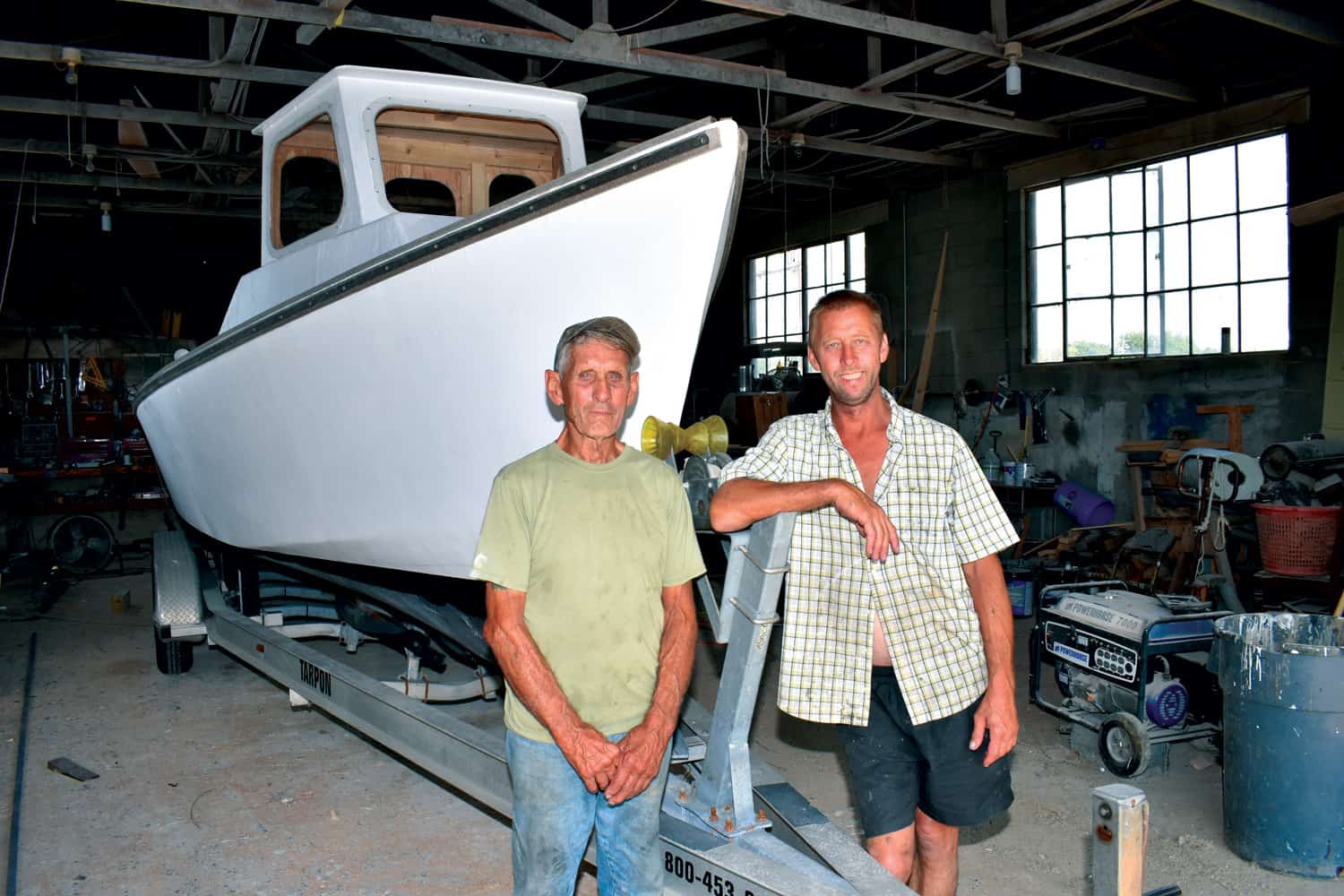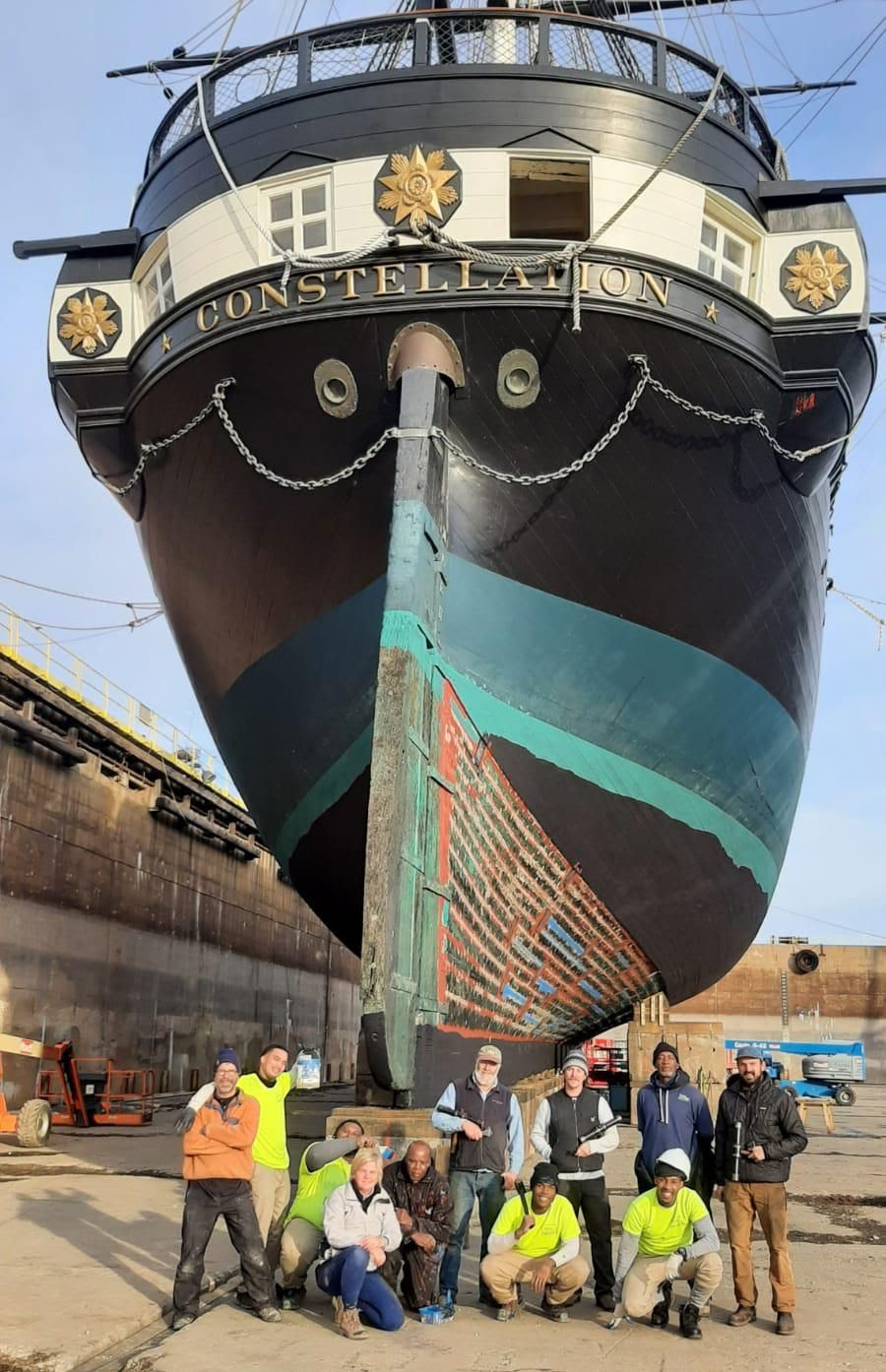Waterman Nat Jones’ life on the Bay
Story and photos by Emmy Nicklin
“I was born on the water… in a sense,” says Nathaniel M. “Nat” Jones on a dripping August day in Weems, Virginia. A lifelong Chesapeake waterman, father of nine, World War II vet, teacher, carpenter, farmer, and husband, Jones’ life is nothing if not rich.
Born in 1926 along Carter’s Creek, the 92-year-old has brackish water in his veins. He recalls days as a boy, rising early to fish with his Uncle Clarence for crabs. Clarence would use a trotline to catch hard-shells while eight-year-old Nat would go wading into Taylor’s Creek for soft-shells. He’d sell them for 10 cents a dozen, often beating out his uncle—”I’d make more money than he would!” Jones beams from the comfort of his living room armchair. When he wasn’t at school, soft-shelling, swimming across the Corrotoman River, or working on neighboring Holly Haven Farm, Jones would watch his Uncle Jerry, nicknamed Moody, carve cedar trees into poles for pole fishing.
Uncle Moody’s namesake, Jones’ grandfather Jerry Carter, hauled freight up and down the Bay—Norfolk to Baltimore—in the 1930s. Even in the dark, with no lights on his boat, the L.T. Buggs, he could navigate these waters. It just came naturally to him.
“He was just gifted I guess,” says Jones. When Carter wasn’t on the water, he grew watermelons and cucumbers in his backyard—”the biggest kinds you’ve ever seen in your life”—and sold them to local factories. He was completely self-sufficient at a time when, for a black man in the south, that was nearly unheard of. “He didn’t work for nobody but himself.”
At age 13, Jones learned to hang and splice rope to create cotton fishing nets from the older watermen and craftsmen at a nearby net house. Jones was eager to join his father on the menhaden boats running out of Reedville, but his father, whose education stopped at second grade, insisted that he finish school.
“He didn’t want me to come up like he did,” Jones says. “He wanted me to learn to read and write.”
In 1944, his final year of high school, Jones was drafted and sent to Europe. He became a combat engineer in the Army, shipped across the English Channel in the follow-up to D-Day. Jones marched through France to southern Germany, building bridges ahead of the infantry, witness to indescribable devastation.
“It was nothing but a pile of bricks,” he says.
After the war, he was stationed in Bremen where he taught math to German schoolchildren. Jones still lays out geometrical terms with certainty: “A circle is a closed figure bounded by curved lines with all points equal distant from the center point within. That’s the definition of a circle,” he says with an exactness that was comforting in the chaos of postwar Europe. “There’s no other definition.”
Jones raced cars on the Autobahn, explored Holland and Switzerland, and fell in love with Europe, but after roughly two years, he was called home to Virginia’s Northern Neck when his mother took ill.
When he returned, Jones started working on one of the boats out of Reedville, fishing for menhaden.
“I was the one who pushed myself into it,” he says. “I was just interested in it, that’s all. I respect the water. I loved the water, all the time.” He served as a rigger, pulling up heavy nets alongside a dozen other men. They’d keep the rhythm with chanties as they heaved the nets over the side of the vessel:
“Bye bye bye sweet Roseanne
Bye bye sweet Roseanna
I thought I heard my loving baby say
I won’t be home tomorrow”
After years of hard, physical labor, Jones became the cook on the boat, serving up fried chicken and potatoes or shrimp and grits, depending on where the boat was stationed—off the Carolinas, in the Chesapeake, or down in the Gulf. He still cooks, feasting on his favorite oyster cakes—pancake batter, an egg, and a pint of oysters, all fried together the morning I arrived.
When he grew tired of cooking, Jones became a pilot, acing the rigorous exam in one try. He’d navigate the shipping channels as the captain mapped out the boat’s itinerary. “You had to run those boats up and down Chesapeake Bay at night and even in the Gulf,” Jones says. “Everyone’s asleep. [It was] lots of strain, lots of stress. Hard on your eyes, I can tell you that. That’s why I can half-see now. One mistake and everyone’s life is in your hands.”
In the winter months, Jones would tong for oysters on the Potomac.
“I didn’t mind the cold weather,” he says. “Colder it got, better I got. Harder I worked.” With heavy 22-foot-long tonging poles, he’d tong 16 to 20 bushels of oysters every day, getting eight to 10 dollars per bushel. “I’ll tell you one thing, I’ve been in rough times out there in that river,” says Jones. “But I loved it, and I liked that money!”
Jones, like his father, discouraged his children from following him into the fishing business. Education was just too important. His children went on to become a pharmacist-turned-Baptist-minister, a principal, a banker, a juvenile probation officer, an IBM executive, a Chesapeake Bay Foundation board member, and more.
Though his children may not know the Bay the way Jones does, they share his love of the water. “Everything around here, in some sort of form, shape, or fashion, is connected back to the water,” says son Eric. And though, as Eric continues to reflect, the wooden workboats and oyster houses that were once synonymous with this part of the world are one by one disappearing, the connection to and pull of the water is no less palpable.
“I miss it in a sense,” says Jones of his work. “But I had worked enough in my life. Hard work, too.” Now as he sits in his faded armchair, surrounded by books and letters and graduation pictures of his grandchildren (he and his wife of 70 years, Marvis, have 23, plus 43 great-grandchildren and four great-great-grandchildren) Jones reflects on his time on the Chesapeake with contentment. “I’ve been through some rough times, you know, but thank God I’m still here, that’s a blessing… I loved fishing. I still love it. And I just love the water. All my work is just the water. Something you’ve been doing all your life, you just get accustomed to it.”



